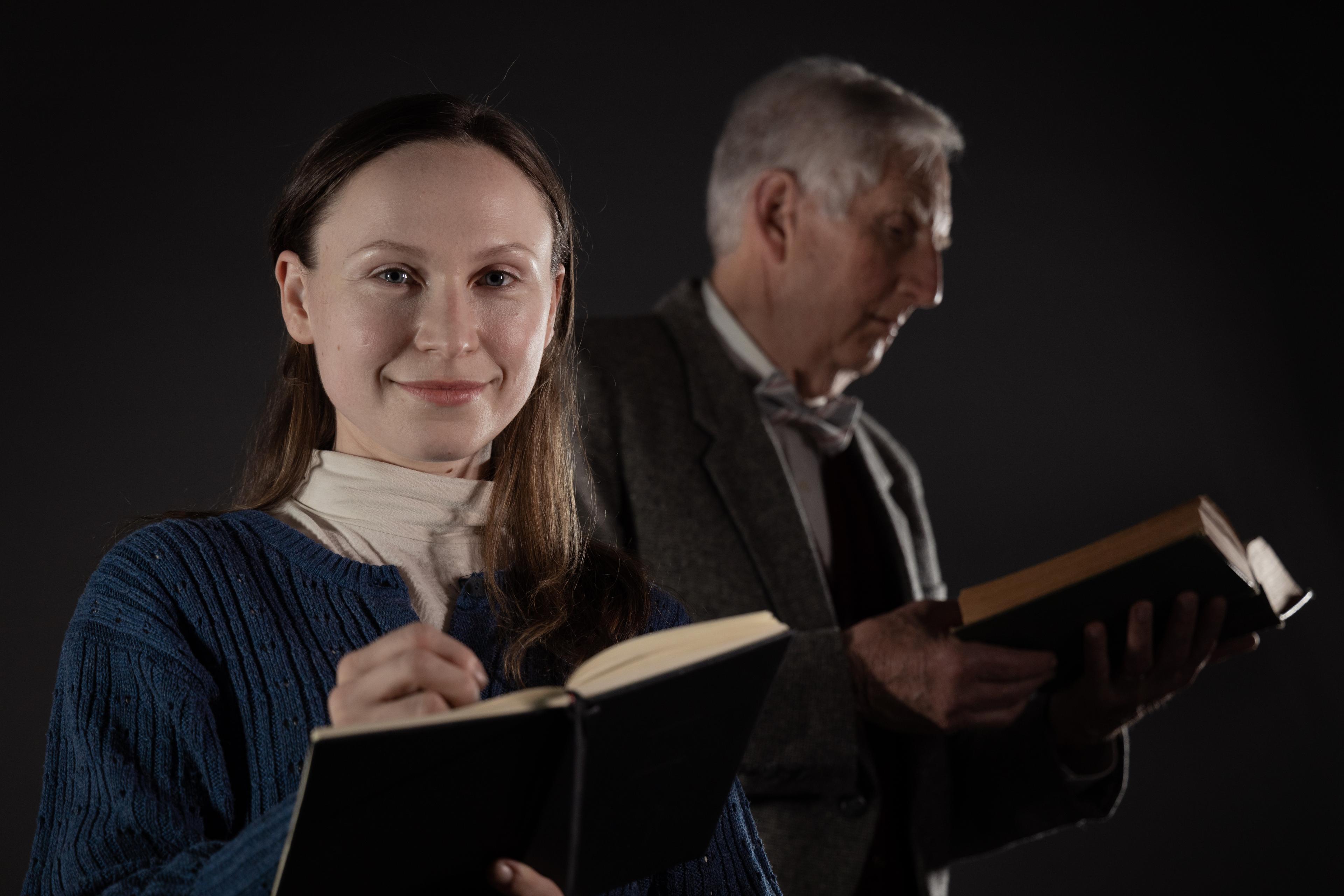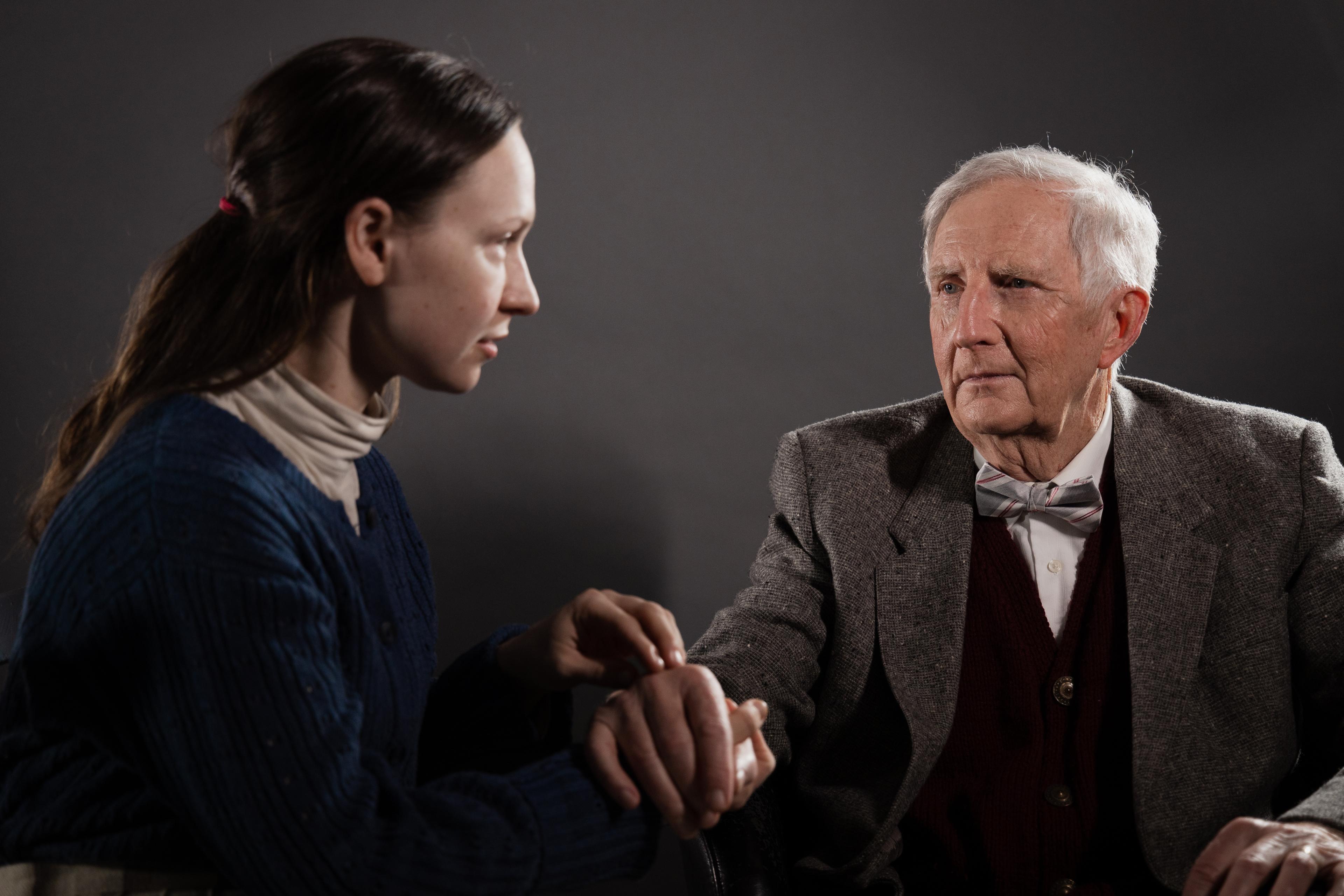
"A direct, plainspoken Prairie woman": Cheryl Sileikies on Sarah Schorr and Trying
Posted on
A Canadian story about two people with very different perspectives "trying" to understand one another, Trying by Joanna McClelland Glass starts January 28 at the Abbotsford Arts Centre!
To learn more about the show, we asked Cheryl Sileikies about her character Sarah Schorr and how rehearsals have been.
Tell us a little bit about yourself. Would Gallery 7 audiences recognize you from any past shows?
I'm new to the theatre. I've worked in the film industry behind the camera for a long time and thought it would be fun to try out for a community play.
Tell us a little bit about your character, Sarah Schorr.
Glass, the playwright, describes Sarah as a direct, plainspoken Prairie woman, and Sarah describes herself as a Prairie Populist. She's definitely all of those things, and is also phenomenally dedicated to her job, which I think all secretaries who learned Speedwriting must have been. She's committed to her blue-collar values, loathing elitism and snobbery but is always open to improvement.
She sees her husband and others being granted special access to exclusivity as a result of gatekeeping instead of meritocracy, which impacts her political pursuits. Despite marrying into apparent wealth and status, her heart aches for those whose quality of life is impacted by financial access and circumstances.
I appreciate that Glass emphasizes Sarah's work ethic and debate skills. Sarah also wants to live a life of the mind and pursue writing as her passion - she loves where she's from but she knows that there's more to the world than her provincial upbringing. She eventually fulfills her legacy, and exalts Biddle simultaneously, but prioritizes Motherhood.
She believes in and supports Biddle's legacy in all he has done for his country, particularly for how he supported the Pennsylvania Coal Miners and opposed Japanese internment camps in the US.
Trying is based on real people and a historical moment in time. Does that change your process as an actor at all?
Yes, the fact that Glass wrote the character of Sarah based on herself makes it seem like accuracy is vital. It feels as if there is less room for interpretation. Of course, it's possible for her to prefer an actresses' portrayal, going beyond her vision (not that I think I've done that or anything) but to me, I think she's more likely to think 'That's not what I was like at all.'
The world's current events at the time also influence the context - Sarah's support for Bobby Kennedy, Martin Luther King, Jr. being murdered, Valerie Solanas' SCUM manifesto being written before shooting Warhol and the like, not just because some of those events are discussed but it causes you to wonder about the state of the people and how that would be reflected in their choices. How free is she? Can she afford to quit? What can happen if she does? If she has to leave, where would she go? Is there still a safety net in a different country?
The stakes are impacted somewhat due to being prior to the women's liberation movement. Sarah speaks about raising her own children, and I do think part of her is elated, wants to make her marriage work, and is grateful that she is benefitting from her husband coming to D.C., considering this exciting opportunity. She and her husband are clearly struggling - about what exactly is never explained, though I have my own character breakdown regarding what I've decided it is. It's just clear that she can't just up and leave. Women today can barely do that, never mind in the '60's.
I've heard a lot of older women say things like 'Well, it's just what you did back in those days.' when asked about their choices (or lack thereof), and it's like 'What does that mean!?'

How has the rehearsal process been so far?
It's been great. Since I've never done theatre before, I get frustrated with myself easily since I forget stage directions all the time.
Glen is also so talented and has SO much more to memorize than me, but he's been handling his workload really well, so I just get jealous.
Jacq, our director is extremely receptive, diplomatic and communicative, which might be because she's a stage performer in her own right. I don't want to be cloying, but I have some vague idea of how lucky we are to have her as our orchestrator and not some screaming jerk who might not care about our work at all. If she has a note about performance choices, she'll always ask us about our character to discuss it, giving our artistry the benefit of the doubt to talk about it beforehand, in case there's something we've decided that she doesn't know about.
It's extremely generous considering I don't really know what I'm doing half the time.
Without giving anything away, what's your favourite moment in the show?
There's a moment where we both really soften due to the other character's vulnerability. I think that a lot changes for the better, right then.
What can audiences expect to see when the lights go down?
A story about people from different backgrounds with varying expectations learning to work together and communicate, and appreciate one another for their points of view despite their individual struggles.
I hope that it's a story that's as engaging to audiences as we've found it to be.
Trying runs January 28 - February 4 at the Abbotsford Arts Centre!
